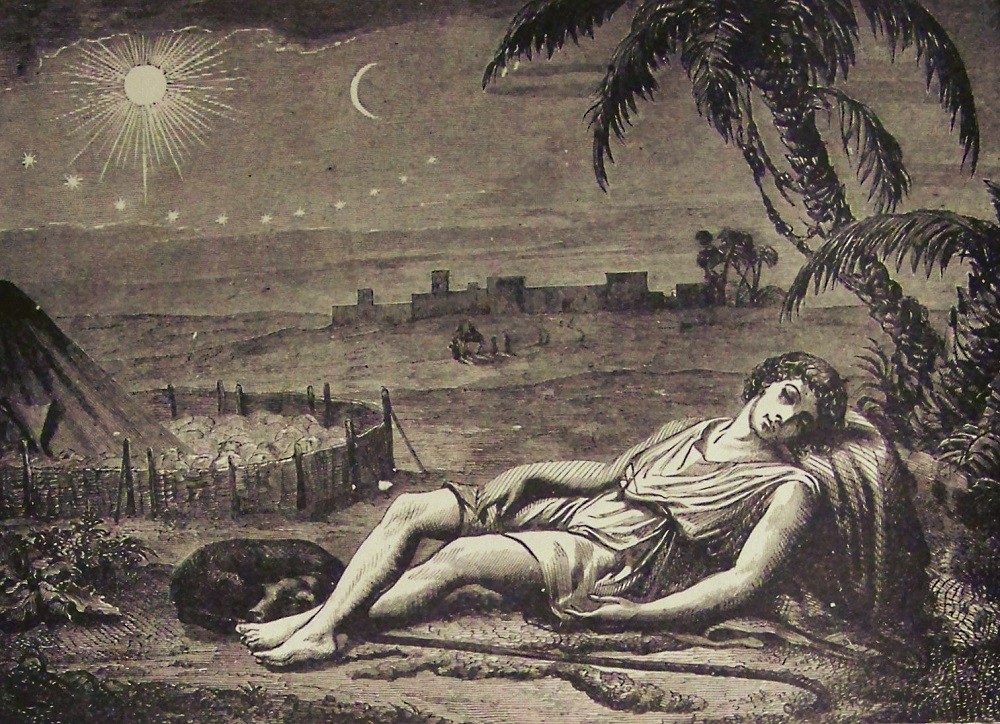In dreams begin responsibilities
When we first meet Joseph, as a teenage boy, he is blessed with visionary dreams yet he is profoundly lacking in wisdom. He foolishly flaunts his reveries at his brothers’ expense, thereby earning their enmity. His dreams of dominion are, in fact, accurate—but he does not yet know what to do with them. He speaks when he should be silent. Joseph’s prophetic gifts run deep—but they blind him to the needs and feelings of others. He is brilliant but insensitive, rich in vision but impoverished in empathy and action. He fails to take responsibility for the consequences of his ill-timed and chosen words.
Decades later, in this week’s portion, Miketz, Joseph grows up. Pain and adversity teach him compassion. Enslavement and imprisonment open his eyes to the suffering of others. Joseph learns how to listen, how to see into the hearts of those around him. This wisdom enables him to develop his prophetic potential into powerful action.
Pharaoh calls upon Joseph to interpret two parallel dreams. Joseph does this—but does not stop there. He goes on to offer policy advice based on his interpretation: Pharaoh should set up a detailed system over all of Egypt to collect and store up food during the seven years of plenty, so that there will be provisions when the seven years of famine strike. Here, Joseph moves from words to acts. He acknowledges that in interpreting dreams, he is a mere vessel, channeling God. But the choice to translate those interpretations into a course of action is his alone. As Rabbi Adin Steinsaltz notes: “From being a dreamer of dreams, Joseph became the person of the dream... a man who experienced the dream... as a burden and a responsibility and a course of action from which there could be no digression. We may not all have the gift to accurately interpret our dreams. But we can assume responsibility for them. That is, after all, just assuming responsibility for ourselves.”
**********
This week’s midah/character trait is responsibility—in the Hebrew, acharayut. The contemporary Mussar teacher Alan Morinis notes that there are two possible Hebrew roots for this midah. The first, achar, means “after,” suggesting that responsibility entails being mindful of the aftereffects, or consequences, of our choices. The second possibility, acher, meaning “other,” reminds us to consider the effects of our choices upon others around us. Joseph comes to understand both of these meanings of acharayut. By the time he meets his long-estranged brothers in next week’s portion, he is very much a changed man.
The Jewish writer Delmore Schwartz wrote story whose title is adapted from a poem by W.B. Yeats: In Dreams Begin Responsibilities. Indeed. As we grow older—and hopefully, wiser and more compassionate—our challenge is to translate our dreams and visions into well-chosen actions. During this week, which celebrates light and miracles, let’s think about how to live up to the responsibilities imposed by our dreams.
Mussar Practice for this Week (from The Mussar Torah Commentary)
During this week, identify a societal issue that you share with others with whom you are in the “same boat.” Take a step, however small, to assume a piece of that responsibility.

1 comment:
And is it not the will of the Holy One that our responsibility is to gather together and to work hard together to Restore Humanity to our Campground Earth?
Post a Comment